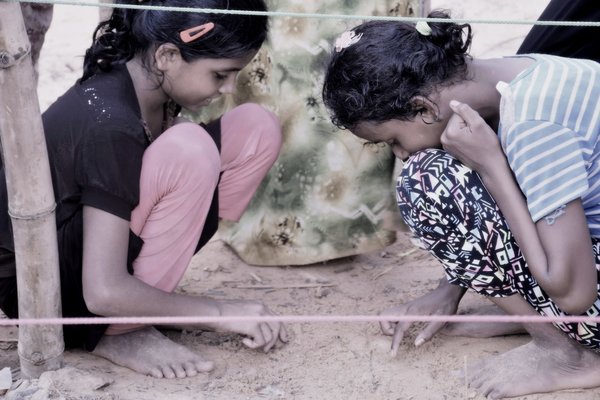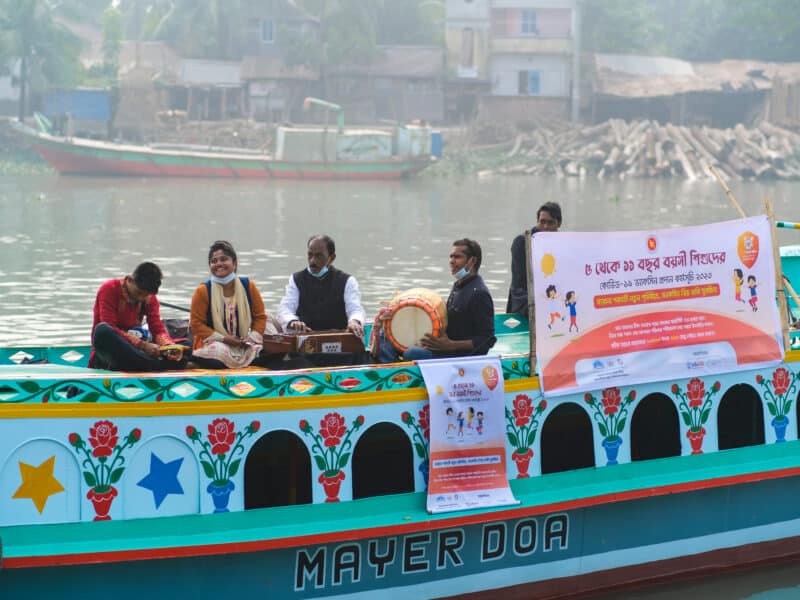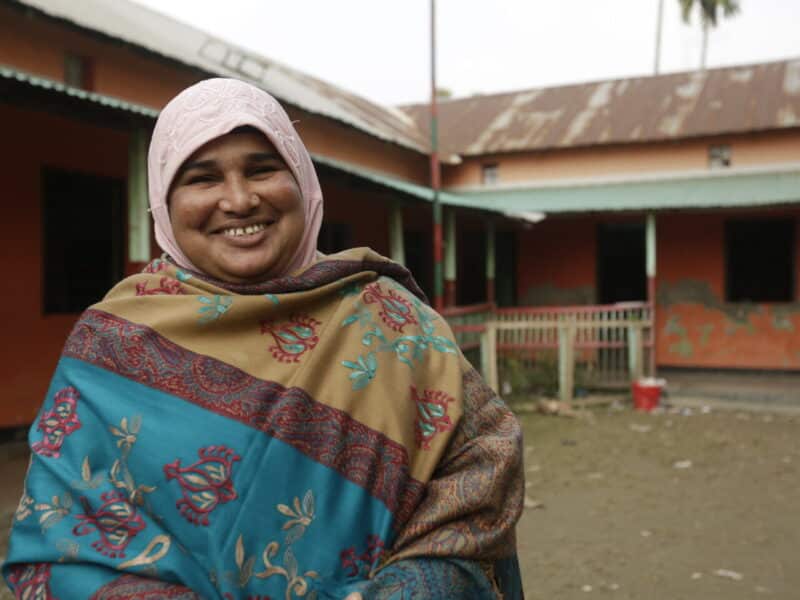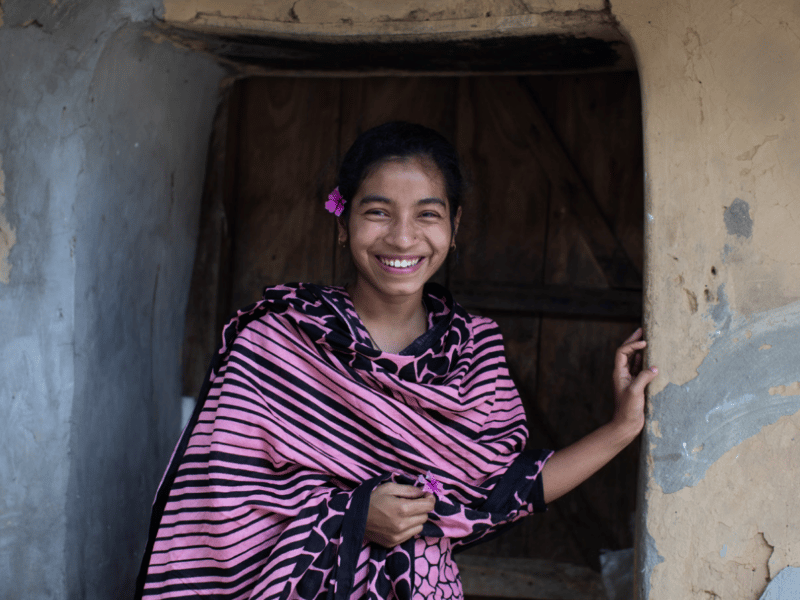In the 10 months since the current Rohingya crisis began, causing a mass exodus of the Muslim group out of Myanmar and into refugee camps across the border in Bangladesh, the Johns Hopkins Center for Communication Programs has been one of the organizations working to help the Rohingya people stay healthy.
Under the USAID-funded Ujjiban social and behavior change project, CCP Bangladesh created a low-tech interpersonal communication curriculum. At the behest of UNICEF, CCP used the curriculum to help 120 master trainers train 1,000 Rohingya volunteers in the camps to improve the health literacy of their fellow refugees. The Ujjiban project has also developed programming for local radio stations to share health messages and encourage people who are sick to seek care in the camps as well as videos.
Patrick Coleman, who heads CCP’s work in Bangladesh, says the work helps to bridge the gap between health officials who are, for example, trying to vaccinate children against diseases like cholera and diphtheria even though the concept of vaccination is foreign to them.
“The Rohingya don’t know why they should get vaccinated. Their kids have never been vaccinated. They have never been vaccinated. A vaccination campaign can’t begin until they understand the benefits of vaccination and their fears of vaccination are addressed,” Coleman says. “So we are working with master trainers so that volunteers can learn how to talk to people and how to listen so that they can explain it to their fellow Rohingya in ways they will understand.”
These volunteers, he adds, “live in the camps. They speak the language. Now they are better equipped to aid their fellow refugees. They play a key role in helping the other Rohingya to prevent some of the diseases spreading through the camps.”
The training also covers the trauma that the Rohingya refugees have been through, being thrust out of their homes and into a brand-new and uncomfortable reality. The trainers, Coleman says, are being taught to look out for mental health problems and how to connect people with appropriate services.
The conditions in the camps are poor and getting worse, Coleman says. The camps, he says, were carved out of hillsides filled with trees and grasses. Latrines were hastily built. There’s no electricity and often sewage flows in the makeshift streets. All of the development has made officials fear that the coming rainy season could mean dangerous landslides, making a difficult situation even worse.
The radio stations are airing spots created by Ujjiban in two languages: Bangla and Rohingya. While most are aimed at the Rohingya and address issues such as handwashing and child marriage, some of the spots are aimed at the surrounding Bangladeshi community which has been impacted by the influx of many hundreds of thousands of people. In order to ease tensions, the spots attempt to reassure the locals that the Rohingya aren’t taking away jobs in the community and that they very much need help to survive.
While there is no electricity in the camps, UNICEF has purchased many wind-up radios that the Rohingya can use to hear the broadcasts.
Coleman says CCP’s Bangladesh office wants to do whatever it can to assist the many affected by this public health emergency on its doorstep.
“It is the largest humanitarian crisis in the world at the moment,” he says. “We felt we could make a contribution to help make lives better for people and help the Bangladeshi community and their government to be able to cope better with the crisis.”





